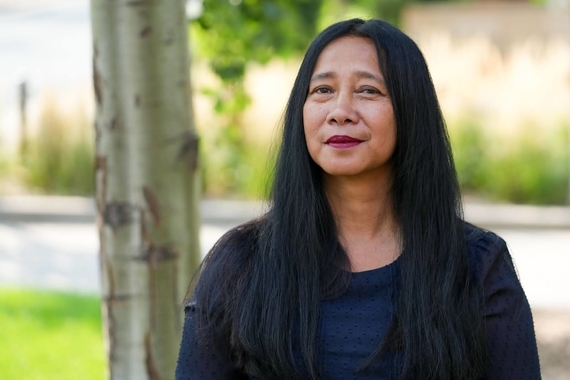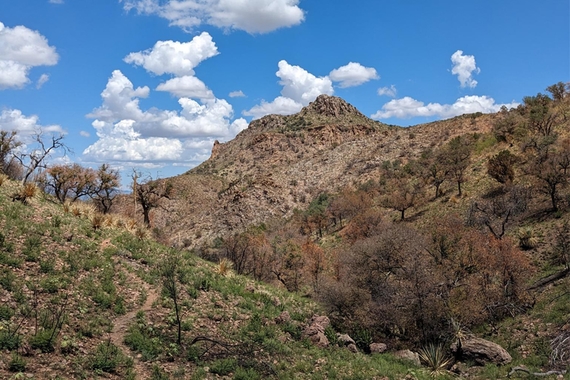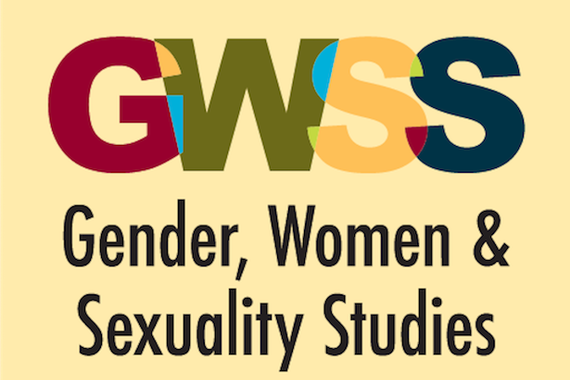GWSS Collective Statement in Support of the Protests in Response to George Floyd’s Murder by the Minneapolis Police
The Department of Gender, Women, and Sexuality Studies at the University of Minnesota-Twin Cities stands outraged and horrified at the killing of Mr. George Floyd, a 46-year old unarmed African American man who was brutally strangled to death by four Minneapolis police officers on Monday, May 25, 2020. We send our deepest condolences to George Floyd’s surviving family and stand with them with all our hearts during this tragedy.
We understand George Floyd’s death to be a larger symptom of systemic anti-black racism that has roots in slavery, white supremacy, policing, militarism, the carceral state, and capitalism. George Floyd, like other recent victims of anti-black violence including Breonna Taylor, Tony McDade, Ahmaud Arbery, and David McAtee, was a beautiful person with a full life ahead of him. Floyd’s death is part of a continuing disregard and devaluing of black life by the Minneapolis police and his death comes in the wake of two horrendous police killings of black men in the Twin Cities in less than five years—those of Philando Castile in 2016 and Jamar Clark in 2015. The murderers of Castile and Clark were never convicted. It came as no surprise that Mohamed Noor, a black police officer, became the first Minnesota police officer to be convicted and sentenced to jail for 12.5 years for accidentally killing a white woman, Justine Ruszczyk, in 2017.
As protesters throughout the world have powerfully argued, these black deaths cannot be reduced to individual acts of violence by the police. They are instead manifestations of deep and systemic structural racism and state violence that have defined American society since its inception. These include gaping inequities in wealth and income, job and educational opportunities, housing, health care, safe and clean air and water, and healthy foods. We understand that the overt hostility directed toward black people like George Floyd is reflected in the criminalization of blackness in media, popular culture, and the entire American criminal-legal system. The criminalization of black Americans fuels the prison industrial complex that has emotionally and economically devastated millions of African American, Latinx, indigenous, and immigrant people over the last few decades, while enriching private corporations and providing a pathway to a debt-saddled middle-class, such as the four men who killed George Floyd: Derek Chauvin, Tou Thao, Alexander Kueng, and Thomas Lane.
The death of George Floyd and other innocent black people, including black gender non-binary and non-conforming people, is a direct result of white supremacist toxic masculinity that fuels violence in US homes and communities and that propels the brutal military-style tactics and attitudes that define contemporary policing in US cities. Toxic masculinity is a legacy of settler colonialism, slavery, and the civilizational logic that has historically justified violent land grabbing, exploitation of labor, and the subjugation of non-white people around the world.
We also recognize that the criminalization of black men in particular, and men of color in general, is a manifestation of the racialized heteronormativity and white nationalism that produces the “dangerous masculinity” of men of color within and outside of the territorial boundaries of the United States. Amy Cooper and other white people calling 911 on black men for jogging, barbequing, living, and breathing in public spaces are indeed current manifestations of the mass lynchings of black (and Mexican) men for threatening the “purity” of white womanhood in the United States. At the same time, the rampant killing of black women, including the disproportionate murders of black trans women, is the direct result of the history of objectification and dehumanization of black women that continues in different forms, from forced sterilizations, shackling of black pregnant women in prisons, and the high rate of COVID-19 deaths due to poverty and medical eugenics.
Students, faculty, and staff in the Department of Gender, Women, and Sexuality Studies stand in solidarity with the millions of people protesting the killing of George Floyd and many other black, brown, and indigenous people around the world. We stand in solidarity with the millions of people who link his death to the proliferation of right-wing extremism, racial capitalism, settler colonialism, white supremacy, and imperialism, which are incapable of showing any humanity even during a global pandemic. We understand that while the US military spending surpasses that of other states, and while the US sanctions military support of authoritarian regimes and settler-colonial states, and US wars are killing innocent people around the world, lack of affordable healthcare, the school-to-prison pipeline, militarized policing, and poverty is killing communities of color in the US It is not a coincidence that the largest number of deaths from COVID-19 is among black and indigenous people in the US.
As transnational feminists who are against policing and militarism, we see the struggle of black people, indigenous peoples, immigrants, Muslims, and queer and trans people in the US as directly connected to the struggles of people in other parts of the world, from Zimbabwe, Iraq, and Venezuela to Iran, Kashmir, and Palestine. We are deeply skeptical of the US support of protests in selective locations around the world under the cloak of “liberation,” when youths of color in the US are called “thugs” and are attacked with rubber bullets and tear gas from Ferguson to Standing Rock to Minneapolis. We also recognize that the US military regime has close military ties to the oppressive security states such as Israel and India. It is not a coincidence that Chauvin’s murderous knee lock as well as the rubber bullets and tear gas canisters that are used in Minneapolis protests are military strategies and weapons used on Palestinian youth by the Israeli Defense Forces on a daily basis. Nor is it an accident that the same drones that are used against immigrants and refugees in the US-Mexico borders are deployed in Minneapolis to identify and criminalize the protesters in Minneapolis.
We believe that damaging community centers, arts organizations, and small black, indigenous, brown, and immigrant-owned businesses hurt our communities. At the same time, we refuse to fall into the divide-and-conquer trap that fractionalizes us into “good protester” and “bad protesters.” Against the logic of capital and profit, we believe that human lives matter and are worth more than property. As Ruhel Islam, a Bangladeshi restaurant owner in Minneapolis, stated, “Let my building burn, justice needs to be served, put those officers in jail.” Sadly, the dehumanization of black lives has garnered more sympathy for damaged property than for black lives in the dominant media. Furthermore, we know that many indigenous, black- and brown-owned businesses have been pressured by the police to surveil communities of color under the racist logic of the “war on drugs” and the “war on trafficking.”
Black protest leaders have repeatedly pointed out that the goal of the protests is to support black and brown people and not to destroy their neighborhoods. In fact, many protesters have protected our neighborhoods against agent provocateurs and opportunistic white nationalists from the suburbs and rural areas. We, like the people of Minneapolis and St. Paul, who have shown up with brooms, food, and donations are ready and committed to rebuilding our community centers, businesses, artist collectives, and nonprofit organizations. At the same time, we believe that the language of “looting” to refer to the protesters erases the significance of mass uprisings, ignores solidarity gestures, and infantilizes our communities.
As feminist scholars of race, feminist black study, and postcolonialism/decoloniality, we stand in solidarity with communities of color and contend that land theft and wage theft from indigenous peoples and enslavement of black peoples—and not people’s legitimate protests—are exemplars of centuries of white looting. Considering that Minneapolis and St. Paul are built on unceded land, looting has a different meaning when understood within a broader history. As Tamika Mallory, the black feminist activist said at a protest in Minneapolis, referring to the US settler-colonial and slavery foundations, “Looting is what you do. We learned it from you!”
While we applaud statements of support by universities and departments in response to George Floyd’s murder and appreciate the University of Minnesota president’s decision to scale back ties with the Minneapolis Police Department, we believe that anti-black racism manifests itself in different ways, such as the discriminatory treatment of black students, faculty, and staff by departments and the administration, and the disproportionate layoff of black staff during the financial crisis. We recognize that while this University has some of the oldest ethnic studies and gender studies departments in the nation, these educational sites have been systematically underfunded and undervalued. We know that intellectuals like us are also complicit with anti-black racism and we remain deeply committed to challenging racism in our own department and supporting the systematic demolition of the brutal carceral state here in the Twin Cities and elsewhere. Finally, the University must take greater responsibility for dismantling the structural barriers that reinforce and deepen racial disparities in education, employment, research, and health care within the Twin Cities that create the environment in which black lives are devalued.
We stand in solidarity with black-led protests in Twin Cities and nationally, and demand that all the four officers involved in the killing of Mr. George Floyd be prosecuted and sentenced for being perpetrators, abettors, and accomplices to his murder. We demand that Bob Kroll be fired. We demand that Mike Freeman step down. We demand that all the police officers who have killed innocent black people and have walked away be charged with murder. We demand that Minneapolis defund the police and reinvest in our communities. We demand the end of white supremacy, militarism, and state violence. We demand security, not through militarization and policing, but through free education, universal healthcare, mutual aid, fair wages, food security, environmental justice, and the abolition of prisons. Finally, we stand with the protesters to say loud and clear that Black Lives Matter and that peace without justice is impossible. We ask you to stand strongly with us against racism, while actively caring for one another, and while working closely together to imagine and create a more just and equitable world.
The GWSS Community


